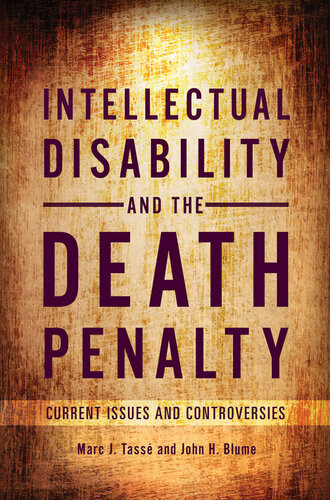

Most ebook files are in PDF format, so you can easily read them using various software such as Foxit Reader or directly on the Google Chrome browser.
Some ebook files are released by publishers in other formats such as .awz, .mobi, .epub, .fb2, etc. You may need to install specific software to read these formats on mobile/PC, such as Calibre.
Please read the tutorial at this link: https://ebookbell.com/faq
We offer FREE conversion to the popular formats you request; however, this may take some time. Therefore, right after payment, please email us, and we will try to provide the service as quickly as possible.
For some exceptional file formats or broken links (if any), please refrain from opening any disputes. Instead, email us first, and we will try to assist within a maximum of 6 hours.
EbookBell Team

4.0
96 reviewsWritten by two nationally recognized experts, this book provides a comprehensive review of the legal and clinical aspects of the death penalty as it relates to intellectual disability. First, the facts: people with intellectual disability may falsely confess to a crime because they want to please the authorities, and they are often less able than others to work with lawyers to prepare a defense. In addition, because of the stigma attached to intellectual disability, affected individuals often become adept at hiding it, even from their attorney, not understanding the condition's importance to the outcome of their case.
Having explained such harsh realities and presented a comprehensive review of what intellectual disability is, the book focuses on the 2002 U.S. Supreme Court Atkins v. Virginia decision granting a death penalty exemption to individuals with intellectual disability. It outlines best practice regarding the determination of intellectual disability and discusses qualifications needed for experts in such cases. Related issues such as common misconceptions regarding people with intellectual disability, race, socioeconomic status, and the status of foreign nationals as it relates to the death penalty and intellectual disability are discussed as well. A must-have resource for prosecutors, defense lawyers, and clinicians providing expert testimony in death penalty cases, this book will also prove absorbing reading for anyone concerned about this troubling issue.